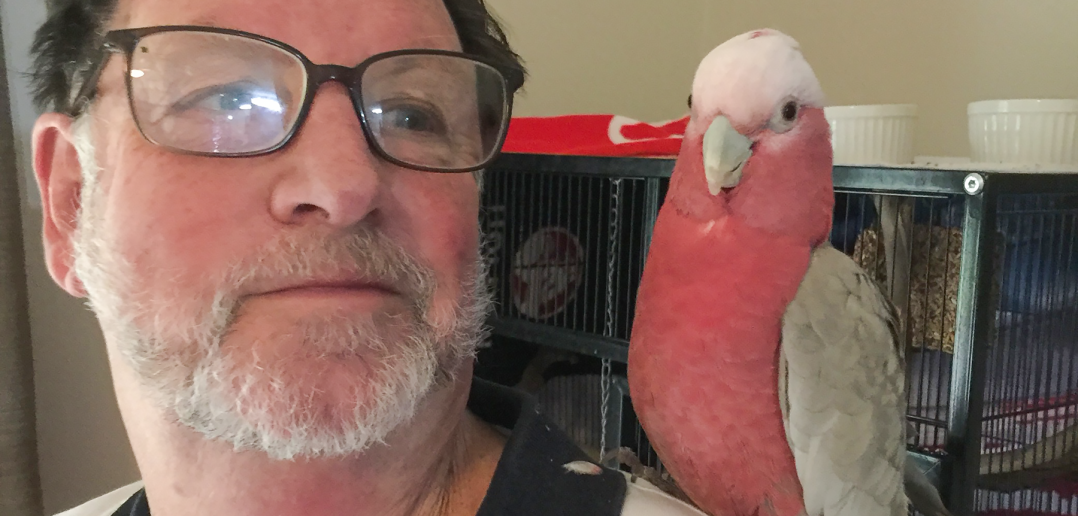Beating ‘the biggest problem with Australian men’

25/10/22
Accessing treatment for prostate cancer in a regional area is not always easy.
But a clinical trial run by Melbourne's Epworth Freemasons hospital is changing lives and helping prostate cancer patients in rural areas obtain the same treatment as those in the city.
Rodney and his wife Julianne live in Milbrulong, a tiny farming town with a population of around 120 people in the Riverina region of New South Wales.
The closest shops are an 11-kilometre drive away in Lockhart, and the nearest regional centre is Wagga Wagga, just under 60km away.
Two years ago, Rodney was diagnosed with prostate cancer and needed immediate treatment.
His specialist suggested a clinical trial the then 67-year-old was eligible to join through the EJ Whitten Prostate Cancer Research Centre at Epworth, led by urologist Professor Nathan Lawrentschuk.
The Surgery in Metastatic Carcinoma of Prostate (SIMCAP) trial gives Rodney access to hormone injections through a prescription filled at his local chemist and administered by his general practitioner, close to home.
The trial – which will complete recruitment in May 2023 – is taking a different approach to the usual treatment, which involves removing the prostate.
It uses Androgen Deprivation Therapy (ADT), which reduces the testosterone that feeds prostate cancer in order to halt tumour growth.
Rodney has regular contact over the phone and electronically with the clinical trials team, including Prof Lawrentschuk and research program manager Thili Chengodu – who has also travelled to Milbrulong to meet the couple as part of the patient support plan.
“It was nice to walk around the yard with Thili and talk, asking her questions in person,” Rodney said.
“The way I see it, there’s not a lot of places for a person to get answers, for people with prostate cancer.
“It’s hard because you don’t have people to talk to about it.”
For Ms Chengodu, visiting patients in their homes, especially when they live in remote or isolated areas, means she can find out more about their concerns and respond to their questions in a more relaxed setting.
“For me, it’s about patient care,” she said.
“Throughout the pandemic, it was important both Rod and Julianne saw me and spoke to me face-to-face, to be assured of their care.
“Therefore, seeing them and other patients who live regionally is something we will continue with our patients who live in both regional areas and metro Melbourne.”
Rodney, now 70, is expected to be on ADT for the rest of his life unless his diagnosis changes.
He said it was great to be able to access specialised treatment and care, despite living so far away from a major centre.
His diagnosis and treatment have inspired him to speak to other men about his experiences and to encourage them to better look after their own health.
“We purchased some steel in town a while back and I was talking to the young fellows there, and they had no idea what the prostate was and what it does,” Rodney said.
“Men generally don’t talk about health. You listen to men talking in a bar, and they will talk about everything else but their health – their sex life, their tractor – everything but that.
“Now, I talk to as many as I can about it and I’m quite open about telling people that they should get tested themselves.”
Rodney said men needed to follow up on their test results.
“They need to get tested to see if there’s a problem or not. And once you’ve had the tests done, if there’s a problem, follow it up!" he said.
“Don’t be blinded by, ‘it’ll be right mate’, that’s the biggest problem with Australian men. ‘She’ll be right, I’m fit and healthy, I don’t need that’.”
Julianne said men also needed to open up about their health to their wives and partners.
“The partner needs to be totally involved, because when it comes to it, we’re the ones taking care of them,” she said.
“It’s a really big thing to take on for anyone, but you’ve got to be in it together.”
Rodney said he had faced many challenges with his illness, but a surprising comfort had come from a pink galah named Silo.
“If I’m feeling down or had a bad day, and I go and lie down on the bed, Silo will come and sit on my hip or my waist and won’t get up again until I do,” he said.
“He’s a real asset to me.”
